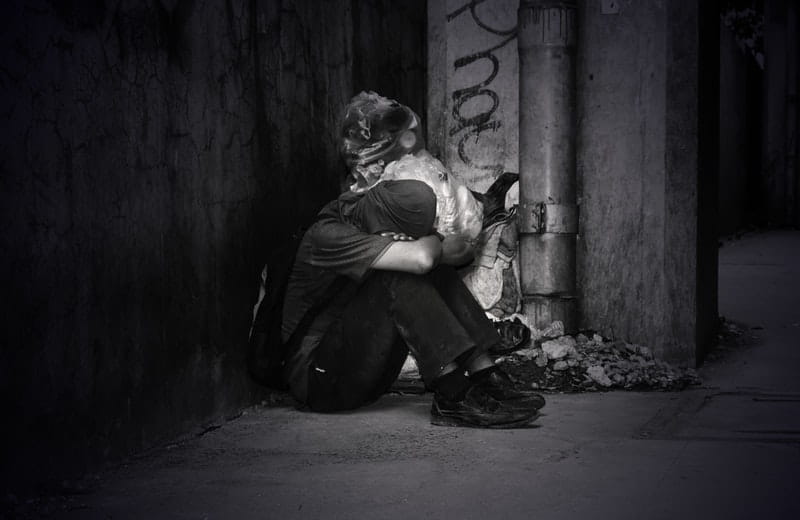The sound of nails on a chalkboard can produce a cringing reaction from many people. But for some, certain sound-based triggers can produce negative reactions much harsher and stronger. The disorder known as Misophonia (directly translated: Hatred of Sound) is a condition where specific sounds provoke abnormally powerful negative reactions in sufferers.
It’s important to understand that Misophonia isn’t triggered by all sounds. For someone suffering from it, it will usually be one or a few specific sounds that causes the reaction, with no abnormal reaction to other sounds.
When a sufferer hears a noise that triggers him or her, it causes a reaction that ranges from moderate irritation or discomfort to extreme rage or panic. Misophonia sufferers can be fully aware that their reactions are far stronger than the situation would seem to dictate, but this doesn’t prevent them from having the reaction.

1. Anger
Anger characterizes the frequent reaction to being triggered by a particular sound. A person suffering from Misophonia often feels an irrational and disproportionate anger or even rage upon hearing a trigger sound. This anger reaction will occur any time the sufferer is exposed to it.
From a physical standpoint, a Misophonia sufferer may feel pressure in the chest, or elsewhere in the body. They may feel muscle tightness and an increase in body temperature. They also may experience an increase in blood pressure and a faster heart beat. Any or all of those symptoms will be accompanying the anger they’re experiencing.
The spectrum of anger can run from closer to irritation all the way to near-uncontrollable rage, but any feelings along these lines can be a symptom of Misophonia. People suffering from Misophonia usually tend to be aware of the fact that their reactions are problematic, but nevertheless the sounds will provoke these feelings of anger.
Misophonia sufferers may or may not direct their anger at the person or object responsible for the noise. In some cases, a person with Misophonia may aggressively confront or lash out at the source of the triggering noise, while in other cases the anger may be internalized or manifested in some other way.
2. Anxiety
Sufferers of Misophonia become aware of their disorder in short order, even if they don’t know what exactly is causing it. As a result, they realize that something is wrong and can often times suffer from persistent feelings of anxiety in their daily lives.
Knowing that certain sounds can completely upset their equanimity means that they’re frequently unable to relax as much as would generally be normal. Misophonia sufferers often feel more stress, even when the stressors are unconnected with the sound triggers or their Misophonia. Just the spillover effect from the Misophonia reactions trickles down into unrelated areas of their lives in many cases.
3. Fear of Loud Noises
Misophonia sufferers sometimes develop a fear of loud noises. This fear can exist independent of the specific triggering sounds they experience. There’s a link in the sufferer’s mind between sound and trauma, and this can cause the person to try to avoid loud noises in general.
One other note about Misophonia and noises is that it’s possible for a sufferer from Misophonia to develop new triggering sounds over the course of time. So, a sufferer might initially only be triggered by one specific sound like keyboard clicking, but over time something like dishes clattering might produce the adverse reaction.
This can cause Misophonia sufferers to dread certain types of noises even if the sound isn’t a Misophonia trigger, as they may be aware that there’s a possibility of new sounds being added to their trigger sets.
4. Depression
Sufferers of Misophonia tend to come to a realization that they don’t feel fully in control at all times. As a result, they often times tend to pull back somewhat socially or in their interactions with loved ones and colleagues.
One of the sad aspects of Misophonia is that sometimes triggering sounds coming from people close to the sufferer can provoke stronger reactions than if the sound is produced by others. This means that a Misophonia sufferer may be prone in particular to having problems with close friends and family.
In addition to social isolation, Misophonia sufferers may experience depression. This may come about as a result of the social isolation, or be unconnected but present as a result of the stress and anxiety surrounding the disorder.
5. Aggression
Some Misophonia sufferers can become aggressive toward the sources of the sounds that trigger their reaction. This is not always the case, but is frequently a symptom observed, and a strong sign of a person dealing with Misophonia.
In the case of people causing the triggering sound, the Misophonia sufferer may lash out and demand that the person be quiet or stop making the offending noise, or may grow irritable or quarrel with the person over unrelated matters.
In the case of inanimate objects causing the triggering sound, the Misophonia sufferer may strike, shake, or otherwise impact or damage the thing causing the sound. For instance, someone triggered by a television noise might throw a remote control at the television.
6. Irritation
Not all instances of Misophonia rise to the level of physical aggression or even verbal confrontation. And not all Misophonia sufferers feel intense anger or rage. Sometimes, the manifestation of Misophonia is more along the lines of irritation or a feeling of being bothered.
The most significant point in trying to determine whether irritation is a symptom of Misophonia is trying to pair it with sound triggers and trying to gauge whether the reaction could be considered disproportionate. There are many sounds which people tend to find somewhat unpleasant, and many reasons to grow irritated not connected with Misophonia.
However, if there’s a pairing between a feeling of irritation that seems out of proportion to the circumstances and that irritation is tied to specific sounds on a consistent basis, this might be a sign of Misophonia.